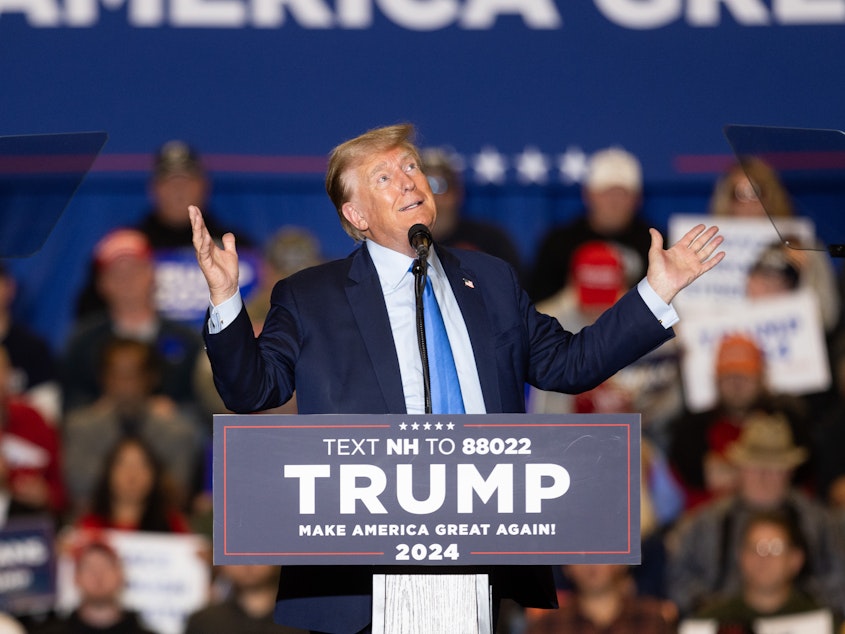Why Trump's authoritarian language about 'vermin' matters

At a recent rally, former President Donald Trump used language in a speech that echoed Adolf Hitler, comparing his political opponents to "vermin."
"We pledge to you that we will root out the communists, Marxists, fascists, and the radical left thugs that live like vermin within the confines of our country," he told a New Hampshire crowd.
There were other nods to authoritarianism in the speech. Trump praised Hungary's strongman leader: "The head of Hungary – very tough, strong guy – Viktor Orban," Trump told the audience, adding approvingly, "He didn't allow millions of people to invade his country."
Later on, Trump referred to himself as "a very proud election denier."
Authoritarian rhetoric has been central to Trump's political trajectory - and his time as president. Ruth Ben-Ghiat, professor of history at NYU and author of the book "Strongman," defines authoritarianism this way:
Sponsored
"It's when the executive branch and the leader find ways to take away checks and balances," she said. "So they have a degree of power that they don't have in a democracy, and they find ways to take away the independence of the legislature and the independence of the judiciary."
She points to a New York Times report that Trump is looking for potential appointees who will not stymie his attempts at greater executive power.
Authoritarianism, in fact, has been found to be key to Trump's political success. In a 2016 study, political scientist Matthew MacWilliams found that belief in authoritarian ideas was the greatest predictor of support for Trump in that Republican primary.
And even in America's heretofore stable democracy, authoritarianism is relatively popular – MacWilliams later found that around 4 in 10 Americans have authoritarian preferences.
"What we have witnessed from Trump over the last few weeks is something new," said Robert Jones, founder of the Public Religion Research Institute, or PRRI. "Trump has clearly crossed into the domain of Nazi ideology openly."
Sponsored
Jones also pointed to a recent interview with the far-right website The National Pulse, in which Trump said that immigration is "a very sad thing for our country; it's poisoning the blood of our country."
The Trump campaign firmly denies any connection to Nazi rhetoric. In a statement, spokesman Steven Cheung told NPR: "Everything President Trump is saying is true. It's honestly despicable and racist for any news organization to make disgusting connections as they have done in the past few days."
He added, "There has been no bigger ally to Israel and the Jewish people than President Trump."
Many people listening to his speech or that National Pulse interview might not realize that Trump's language echoes language Hitler used. But Jones argues that that's not the only reason Trump's language matters:
"This language of rooting out vermin – the reason why authoritarian leaders use that is because it does dehumanize their political opponents," he explained.
Sponsored
"The dehumanization of political opponents are the bricks that pave the road to political violence," Jones said.
PRRI recently found that 23 percent of voters, including one-third of Republicans, agreed that quote "true American patriots may have to resort to violence in order to save our country."
That poll also found that 38 percent of Americans, including nearly half of Republicans, agree that the U.S. needs a leader who quote "is willing to break some rules if that is what it takes to set things right." Jones sees this as a clear indication of authoritarian sentiment.
Othering an entire group, whether it's immigrants or political opponents, is powerful for authoritarians, says Ben-Ghiat.
"You need to get people to feel they have an existential threat facing them," she said. "And the more they feel uncertain and fearful, the more the strongmen can appear and say, 'I alone can fix it.'"
Sponsored
And "I alone can fix it" is a sentiment Americans have heard before – Trump said exactly that when he first accepted the Republican nomination in 2016. [Copyright 2023 NPR]



